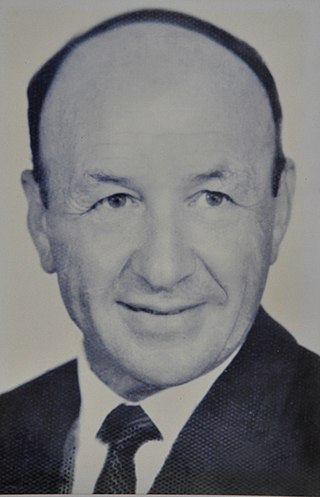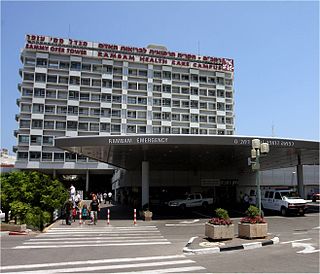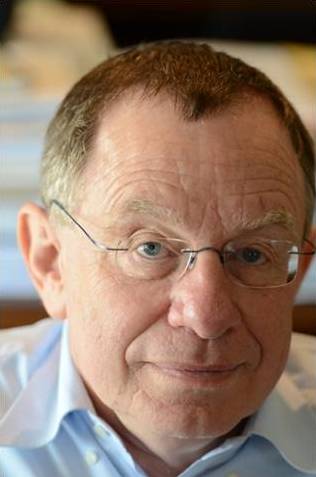
The Technion – Israel Institute of Technology is a public research university located in Haifa, Israel. Established in 1912 under the dominion of the Ottoman Empire, the Technion is the oldest university in the country.

The Medical University of South Carolina (MUSC) is a public medical school in Charleston, South Carolina. It opened in 1824 as a small private college aimed at training physicians and has since established hospitals and medical facilities across the state. It is one of the oldest continually operating schools of medicine in the United States and the oldest in the Deep South.

Hadassah, The Women's Zionist Organization of America is an American Jewish volunteer women's organization. Founded in 1912 by Henrietta Szold, it is one of the largest international Jewish organizations, with nearly 300,000 members in the United States. Hadassah fundraises for community programs and health initiatives in Israel, including the Hadassah Medical Organization, two leading research hospitals in Jerusalem. In the US, the organization advocates on behalf of women's rights, religious autonomy and US–Israel diplomacy. In Israel, Hadassah supports health education and research, women's initiatives, schools and programs for underprivileged youth.

Aaron Ciechanover is an Israeli biologist who won the Nobel Prize in Chemistry for characterizing the method that cells use to degrade and recycle proteins using ubiquitin.

Aaron Valero (1913–2000) was an Israeli physician and educator who helped establish hospitals and medical schools, authored medical publications and contributed greatly to the advancement of medical education in Israel in the latter half of the 20th century.

The Middle East Cancer Consortium (MECC) is a regional initiative for cancer research and treatment. Established in 1996, MECC members include the United States, Cyprus, Egypt, Israel, Jordan, the Palestinian Authority, and Turkey. MECC aims to reduce the incidence and impact of cancer in the Middle East region through the solicitation and support of collaborative research and regional education. Its motto is: "Respect all people, collaborate in fighting human suffering, and help build a bridge for better understanding among all."

Oncology is a branch of medicine that deals with the study, treatment, diagnosis and prevention of cancer. A medical professional who practices oncology is an oncologist. The name's etymological origin is the Greek word ὄγκος (ónkos), meaning "tumor", "volume" or "mass". Oncology is concerned with:
Hospice care is a type of health care that focuses on the palliation of a terminally ill patient's pain and symptoms and attending to their emotional and spiritual needs at the end of life. Hospice care prioritizes comfort and quality of life by reducing pain and suffering. Hospice care provides an alternative to therapies focused on life-prolonging measures that may be arduous, likely to cause more symptoms, or are not aligned with a person's goals.

Rambam Health Care Campus commonly called Rambam Hospital, is a teaching hospital in the Bat Galim neighborhood of Haifa, Israel. Rambam Health Care Campus is a part of Tertiary Referral Center for Northern Israel, It was founded in 1938, 10 years before the establishment of the State of Israel.

The Ruth and Bruce Rappaport Faculty of Medicine is a medical school that operates in Bat Galim, Haifa and is part of the Technion's Faculty of Medicine.
George Bosl is an American cancer researcher, holder of the Patrick M. Byrne Chair in Clinical Oncology at the Memorial Sloan-Kettering Cancer Center in New York City, and is a professor of medicine at the Weill Cornell Medical College. In 1997, he was appointed chair of the Department of Medicine at Sloan-Kettering, a position which he held until 2015. In 2019, he was named Memorial Sloan Kettering's first ombudsperson.

Rafael (Rafi) Beyar is an Israeli medical doctor, entrepreneur, and professor who is the eighth director of Rambam Health Care Campus since 1996. Beyar, an authority on interventional cardiology, also continues to practice in his specialty of clinical invasive cardiology. Beyar is the editor of several books related to cardiology and electrophysiology, including Frontiers in Interventional Cardiology, Proceedings from International Meetings, Analysis of Cardiac Development: from Embryo to Old Age; and co-founder of Corindus Vascular Robotics.
Yaakov "Koby" Nahmias is an Israeli biomedical engineer and entrepreneur. Nahmias is a professor at the Hebrew University of Jerusalem and an affiliated member of the NIH-funded BioMEMS Resource Center at Massachusetts General Hospital.
The End-of-Life Nursing Education Consortium (ELNEC) project is a national education initiative whose mission is to improve palliative care. The project provides an undergraduate and graduate nursing faculty, CE providers, staff development educators, specialty nurses in pediatrics, oncology, critical care, and geriatrics, and other nurses with training in palliative care so they can teach this information to nursing students and practicing nurses. ELNEC is a partnership between the American Association of Colleges of Nursing (AACN), Washington, DC and the City of Hope, Duarte, CA. The project provides undergraduate and graduate nursing faculty, CE providers, staff development educators, specialty nurses in pediatrics, oncology, critical care, and geriatrics, and other nurses with palliative care training. Once trained, these healthcare professionals go on to teach this essential information to nursing students and practicing nurses. The project, which began in February 2000, was initially funded by a major grant from The Robert Wood Johnson Foundation (RWJF). The National Cancer Institute (NCI), American Association of Colleges of Nursing (AACN), US Cancer Pain Relief Committee, the Aetna, Archstone, Oncology Nursing, California HealthCare, Milbank, Stupski, Open Society, and Cambia Health Foundations, and the Department of Veterans Affairs (VA) have provided additional funding.
Institute for Medical Research, Israel-Canada (IMRIC) is a research institute affiliated with the Faculty of Medicine of the Hebrew University of Jerusalem.

Salman Zarka is an Israeli physician and the current Director of Ziv Medical Center in Safed. He is a reservist of the Israel Defense Forces in the rank of Colonel, and a senior lecturer at the Faculty of Social Welfare and Health in the School of Public Health of Haifa University and the Department of Military Medicine in the military doctors top track of Hebrew University in Jerusalem.
Deborah Watkins Bruner is an American researcher, clinical trialist, and academic. She is the senior vice president for research at Emory University. Her research focus is on patient reported outcomes, symptom management across cancer sites, sexuality after cancer treatment, and effectiveness of radiotherapy modalities. Bruner's research has been continually funding since 1998, with total funding of her research exceeding $180 million. She is ranked among the top five percent of all National Institutes of Health-funded investigators worldwide since 2012, according to the Blue Ridge Institute for Medical Research.
Dr. Kathleen M. Foley is an American physician. She was an Attending Neurologist at Memorial Sloan-Kettering Cancer Center in New York City. She worked as a professor of Neurology, Neuroscience, and Clinical Pharmacology at Cornell University Weill Medical College. Foley made contributions toward making palliative care for cancer patients accessible. She headed the country's first pain service in a cancer center at Memorial Sloan-Kettering and was the medical director of the Supportive Care Program. In 1999, she became the director of the Open Society Institute’s Project on Death in America. Additionally, Foley was the Director of the WHO Collaborating Center for Cancer Pain Research and Education at Memorial Sloan-Kettering Cancer Center. She holds the Chair of the Society of Memorial Sloan-Kettering Cancer Center in Pain Research and continues to work with the Open Society Institute as the Medical Director of the International Palliative Care Initiative of the Network Public Health Program of the Research.
Eliezer Shalev is an Israeli gynecologist and current President of Tel Hai Academic College. He also serves as Chairman of the Israeli Ministry of Health National Council for Gynecology, Neonatology and Genetics.











